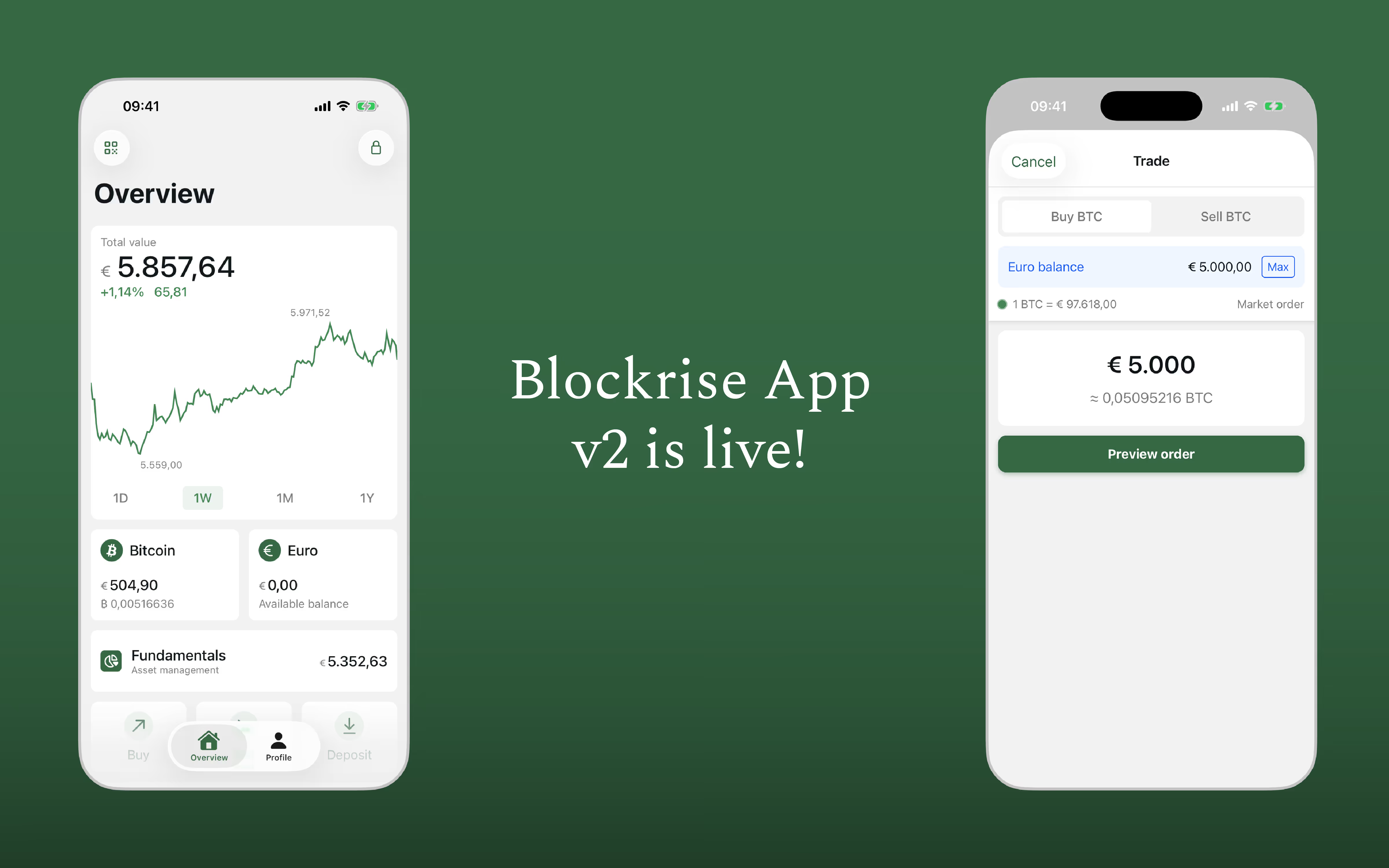Based on Bitcoin,
built for the long run.
Blockrise helps to protect and grow your bitcoin legacy, combining institutional security with the principles that made Bitcoin possible.
MiCAR Licensed
Hardware security
Our core services
Everything you need to manage and grow your Bitcoin legacy.
Ultra-secure custody, asset management, brokerage, legacy planning and lending services for Bitcoin. Blockrise provides the financial infrastructure for dedicated Bitcoiners.
Our product
Built for Bitcoiners who think in decades
With Blockrise, your bitcoin remains truly yours. Your legacy is safeguarded under European law, protected by Swiss hardware, and managed with the highest possible integrity.
NOTE: Investing in bitcoin involves risks and may be subject to full or partial losses. You should only invest if you understand bitcoin and with money you can lose.
Individual wallets
Our individual wallet structure ensures that you always maintain full transparency while you remain in control of your bitcoin.
Discover more
Secure your bitcoin
Protect your bitcoin with Swiss hardware security, directly integrated with our mobile Blockrise App. Each transaction is fully verifiable on-chain.
Learn more
Blockrise Broker
Fund your Blockrise account instantly in order to buy and sell bitcoin, whenever you think is the right time.
Discover more
Plan your legacy
It is now possible to securely add a Blockrise Back-up key to your wallets, ensuring access to your bitcoin even if you lose all other keys.
Learn more

Engineered for Bitcoin, trusted by Bitcoiners
Blockrise built a platform dedicated to Bitcoiners who desire a user-friendly experience without having to surrender on security. Everything has been thought-through for the best experience.
Learn more about Bitcoin
100 %
Bitcoin-only platform
99,9 %
Platform uptime
<24 hours
Account approval, also for business clients
MiCAR-licensed in The Netherlands
Blockrise operates as a CASP under the MiCAR license, the European crypto-asset regulation. This ensures that all services and processes of Blockrise are fully compliant with the applicable laws and regulations.
Institutional security
Our infrastructure has been developed independently by our own engineers, to ensure the highest security standards. The platform undergoes continuous security reviews and testing, protecting your bitcoin against external threats.
Bitcoiners deserve
Bitcoin custody
With Blockrise, your bitcoin remains in your control. Our custody adheres to the core values of Bitcoin, only you can access your bitcoin.

The latest updates and
discover more
Discover more
Discover what Blockrise can offer in a personal call.




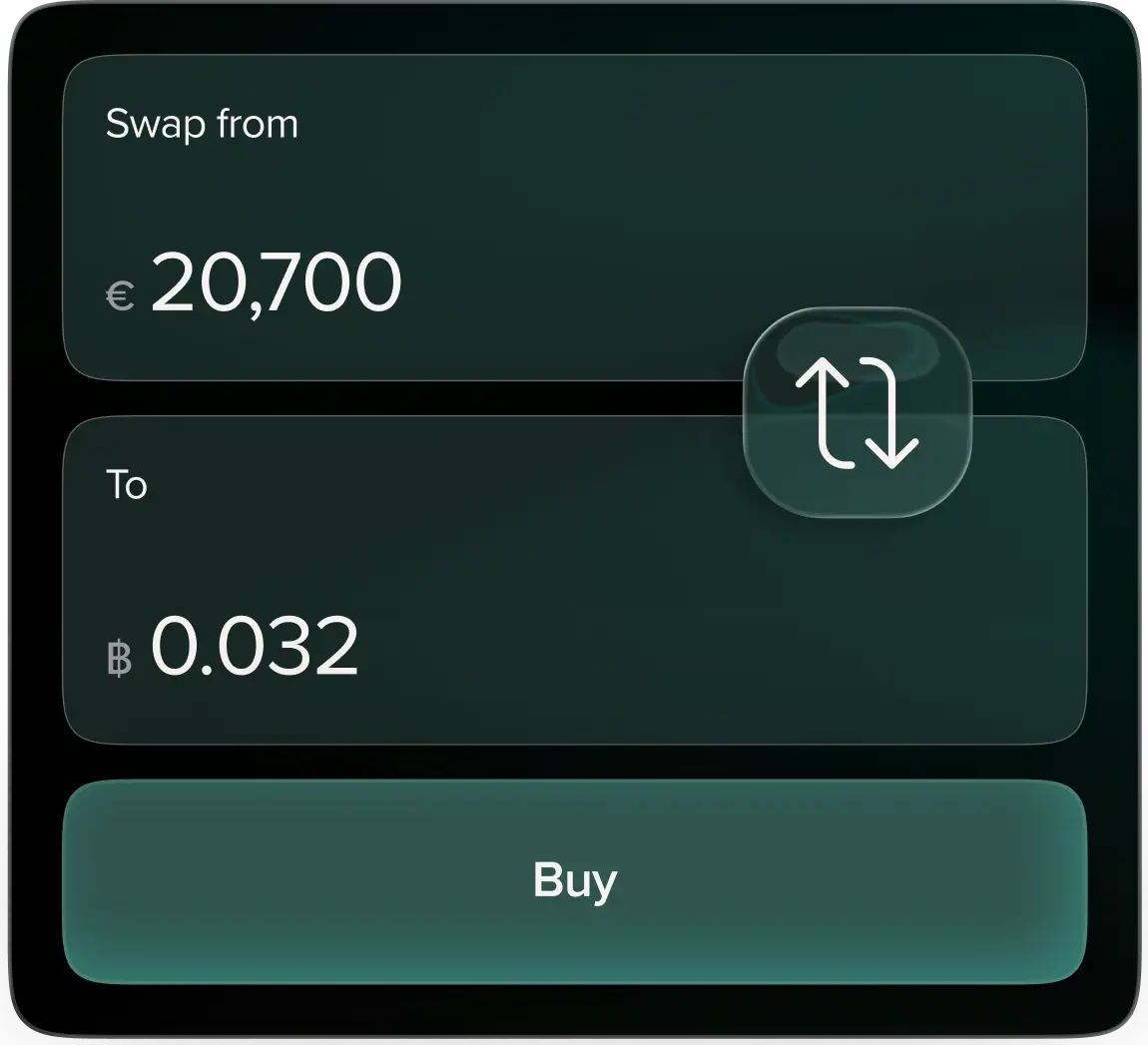




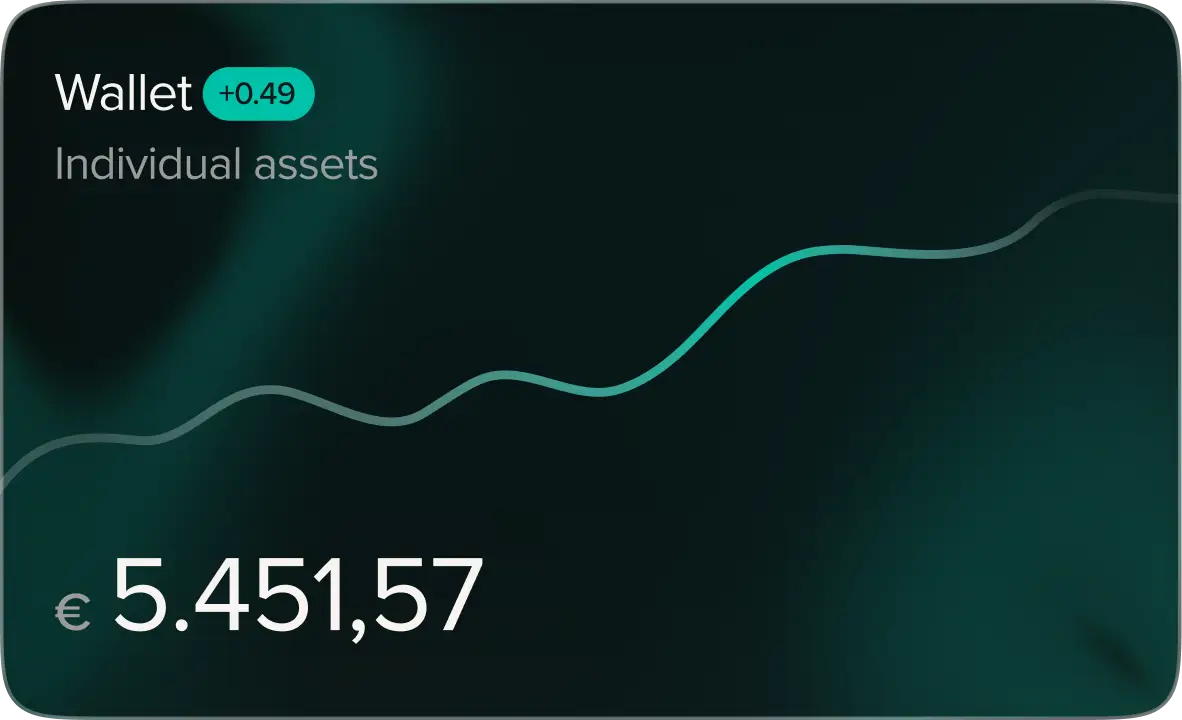


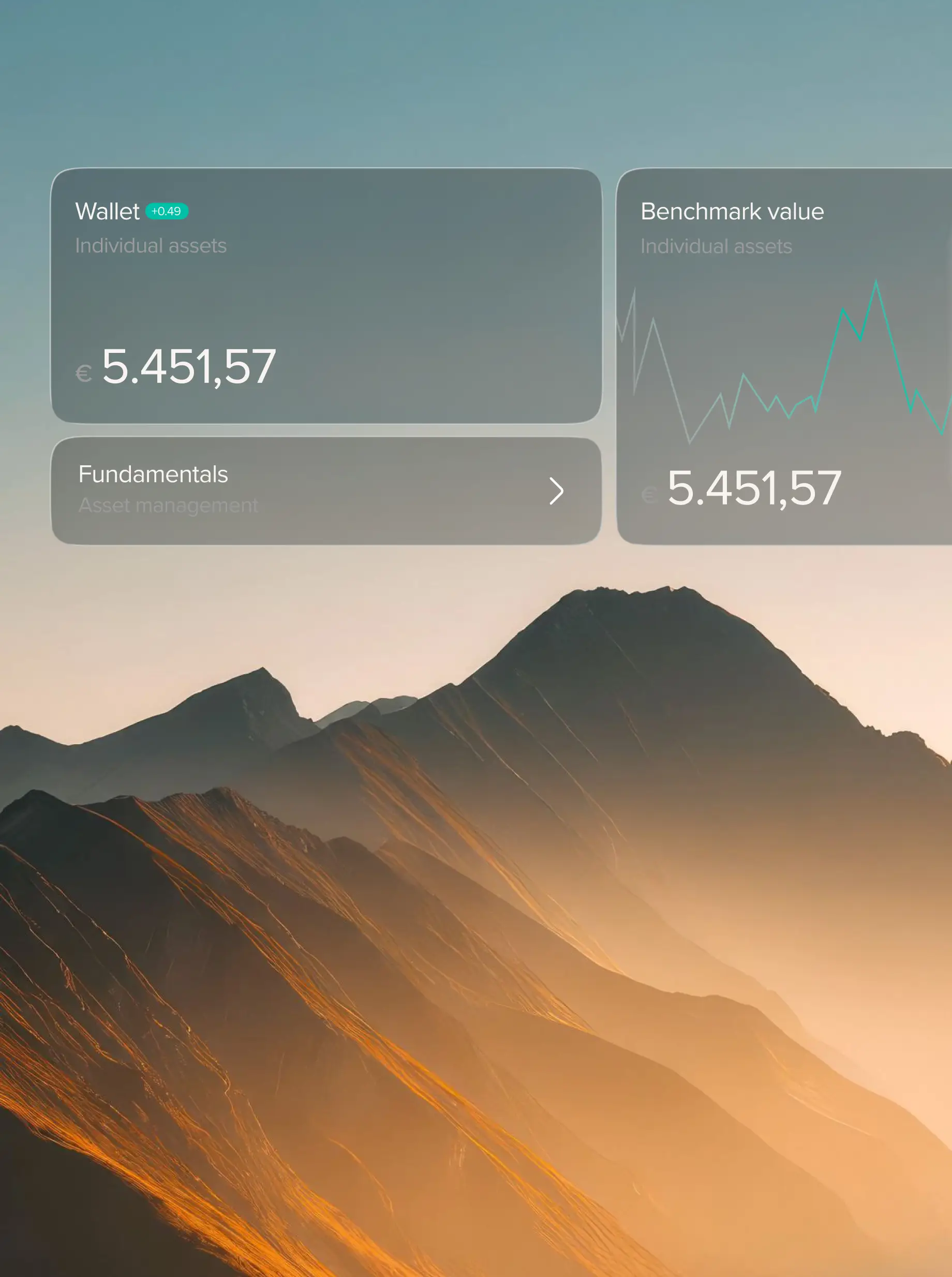
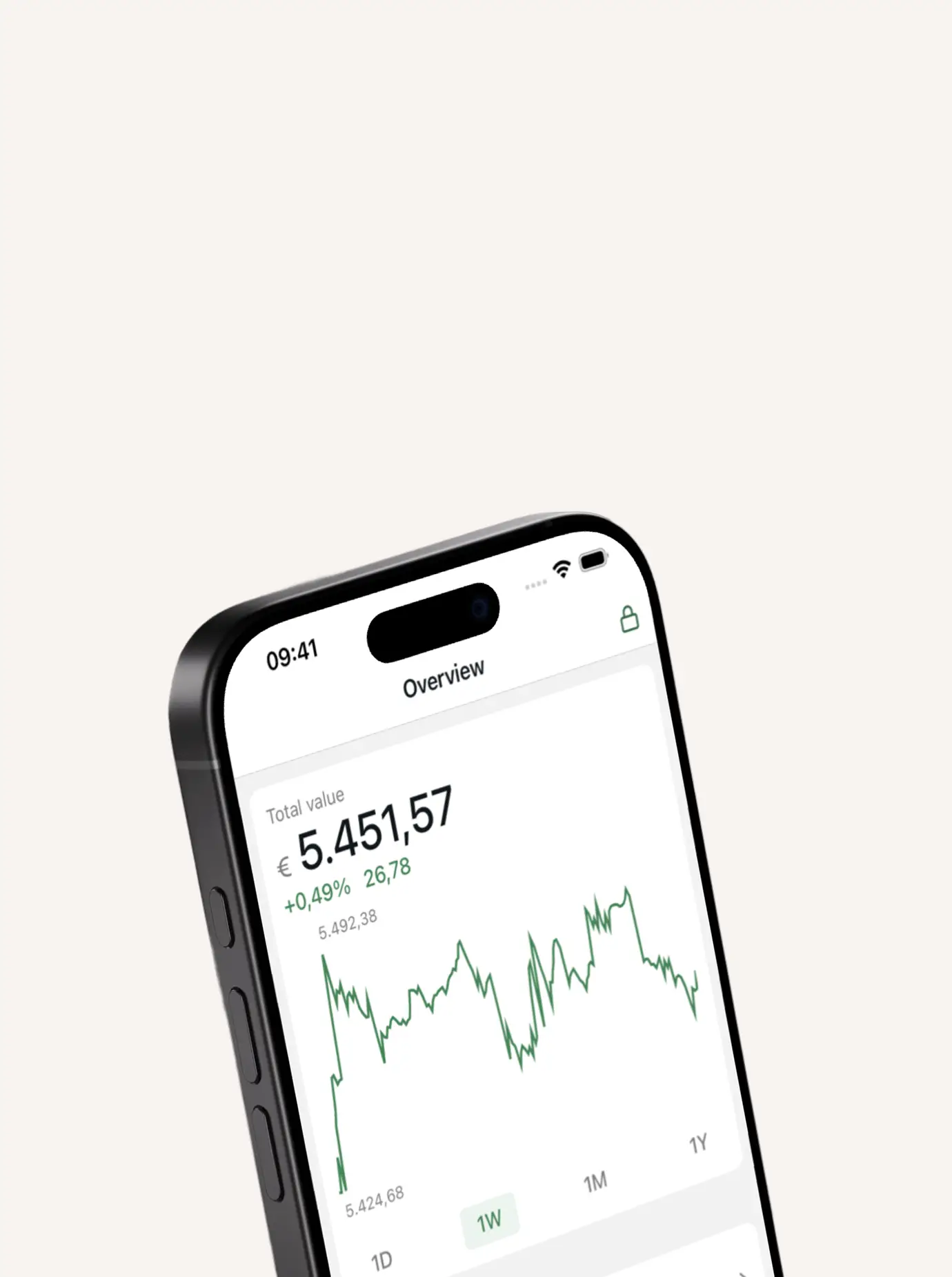

%20and%20Jasper%20Hu%20(CTO)_2.jpeg)

